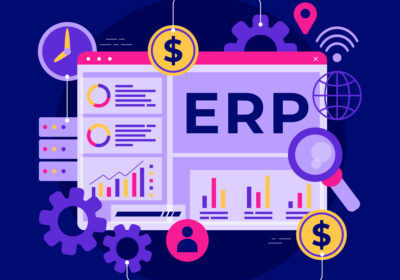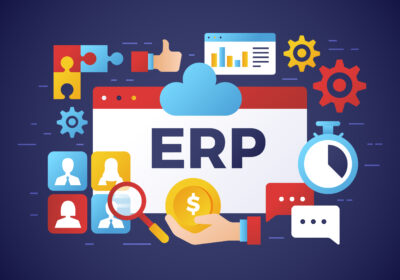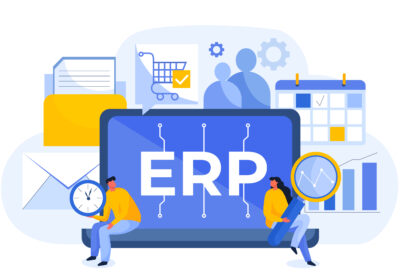In today’s complex business landscape, organizations rely on various software solutions to manage their operations and interact with customers. Two crucial software categories are Enterprise Resource Planning (ERP) and Customer Relationship Management (CRM). While both play vital roles in business efficiency and growth, they serve distinct purposes and cater to different functional areas.
Understanding ERP and CRM:
ERP (Enterprise Resource Planning): ERP software is a comprehensive business management solution designed to integrate and automate core operational processes across various departments, including finance, accounting, human resources, supply chain management, and manufacturing. It provides a single platform for managing data and resources, streamlining workflows, and improving operational efficiency.
CRM (Customer Relationship Management): CRM software focuses on managing and improving customer interactions. It helps businesses track leads, manage sales pipelines, provide customer service, and gain valuable insights into customer behavior. CRM systems aim to enhance customer experience, build stronger relationships, and drive loyalty.
Key Differences:
The primary distinction between ERP and CRM lies in their focus areas:
Functional Focus: ERP primarily supports back-office functions, while CRM focuses on front-office functions. ERP streamlines internal operations and resource management, whereas CRM facilitates customer interactions and relationship building.
Data Management: ERP manages operational data, including financial transactions, inventory levels, and production schedules. CRM focuses on customer data, such as contact information, purchase history, and support interactions.
User Base: ERP caters to various departments within an organization, including finance, operations, and human resources. CRM is primarily used by sales, marketing, and customer service teams.
Additional Considerations:
Integration: While ERP and CRM serve distinct purposes, they can be integrated to provide a holistic view of the business. This integration allows for data exchange and improved collaboration between different departments.
Implementation: ERP systems are typically more complex to implement due to their comprehensive nature. CRM systems are often more user-friendly and require less extensive customization.
Choosing the Right System:
The choice between ERP and CRM depends on your specific business needs and priorities. Consider the following factors:
Business Size and Complexity: Larger organizations with complex operations may benefit more from an ERP system. Smaller businesses or those focused primarily on customer interactions may find a CRM system more suitable.
Departmental Needs: Assess the specific needs of your departments and identify areas where automation or improved data management could significantly impact efficiency.
Integration Capabilities: If you plan to integrate the chosen system with existing software, ensure compatibility and seamless data flow.
While ERP and CRM have traditionally served distinct purposes, the future holds exciting possibilities for their convergence and integration. This trend is driven by several factors:
- Data-Driven Decision Making: Both ERP and CRM systems collect and analyze vast amounts of data. Integrating these systems allows for a holistic view of the customer journey, enabling data-driven decisions that improve both operational efficiency and customer experience.
- Personalized Customer Interactions: By combining customer data from CRM with operational data from ERP, businesses can personalize interactions and tailor offerings to individual customer needs and preferences.
- Improved Collaboration: Integrating ERP and CRM fosters seamless collaboration between sales, marketing, customer service, and other departments. This ensures everyone has access to the same information and can work together towards shared goals.
Emerging Technologies:
The rise of technologies like artificial intelligence (AI), machine learning (ML), and the Internet of Things (IoT) is further blurring the lines between ERP and CRM. These technologies are being integrated into both systems, enabling:
- Predictive Analytics: AI and ML can analyze data from both ERP and CRM systems to predict customer behavior, identify potential issues, and optimize operations.
- Real-Time Insights: IoT sensors can provide real-time data on customer interactions, product usage, and operational performance, allowing for immediate adjustments and proactive decision-making.
- Automated Customer Service: AI-powered chatbots and virtual assistants can handle routine customer inquiries, freeing up human agents for more complex interactions.
While this overview provides a clear distinction between ERP and CRM, there’s more to consider when navigating their functionalities and potential benefits. Here’s a deeper dive into the key differences and how they impact your business:
Impact on Business Functions:
ERP:
- Streamlines back-office operations and resource management.
- Improves efficiency in finance, accounting, supply chain, and manufacturing.
- Provides real-time insights into operational performance and resource utilization.
- Enhances collaboration and communication across departments.
CRM:
- Optimizes customer interactions and relationship building.
- Improves sales pipeline management and lead conversion rates.
- Enhances customer service efficiency and satisfaction.
- Provides valuable insights into customer behavior and preferences.
Data Management and Reporting:
ERP:
- Manages operational data, including financial transactions, inventory levels, and production schedules.
- Offers comprehensive reporting and analytics capabilities for operational performance.
- Provides a single source of truth for financial and operational data.
CRM:
- Manages customer data, such as contact information, purchase history, and support interactions.
- Offers customer behavior analytics and insights for targeted marketing and sales strategies.
- Enables personalized customer interactions and improved customer service experiences.
Integration and Collaboration:
ERP:
- Can be integrated with other business systems like CRM for a holistic view of the organization.
- Facilitates data exchange and collaboration between departments.
- Provides a platform for cross-functional decision-making based on real-time data.
CRM:
- Can be integrated with marketing automation and e-commerce platforms for seamless customer journeys.
- Enables collaboration between sales, marketing, and customer service teams.
- Provides a centralized platform for managing customer interactions and relationships.
Choosing the Right System:
ERP:
- Ideal for businesses with complex operational needs and large data volumes.
- Suitable for organizations seeking improved efficiency, cost reduction, and resource optimization.
- Requires careful planning and implementation due to its comprehensive nature.
CRM:
- Best suited for businesses focused on customer acquisition, retention, and relationship building.
- Offers a user-friendly interface and faster implementation compared to ERP.
- Consider integration capabilities to ensure seamless data flow with existing systems.
Conclusion:
The future of ERP and CRM lies in their convergence and integration, creating a unified platform for managing all aspects of the business. This approach will empower organizations to make data-driven decisions, personalize customer interactions, and improve overall operational efficiency. As emerging technologies continue to evolve, we can expect even greater advancements in how ERP and CRM systems work together to drive business growth and success.
This blog has provided a comprehensive overview of the differences between ERP and CRM, explored their future convergence, and highlighted the potential of emerging technologies. By understanding the evolving landscape and embracing the power of integrated systems, businesses can position themselves for a future of increased efficiency, customer-centricity, and competitive advantage.





